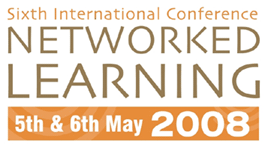

Virtual Libraries as Virtual Learning Spaces: the experiences of the LASSIE project
Jane Secker
Centre for Learning Technology, London School of Economics and Political
Science j.secker@lse.ac.uk
Gwyneth Price
The Newsam Library, Institute of Education, University of London, g.price@ioe.ac.uk
Abstract
This paper reports on outcomes from the LASSIE (Libraries and Social Software in Education) project, which was funded by the University of London Centre for Distance Education (CDE) for nine months from March to November 2007. The project aimed to explore how ‘social software’ or ‘Web 2.0’ might enhance the use of library services by distance learners and was led by a team from London School of Economics and Political Science (LSE) and the Institute of Education University of London (IoE); project partners also included London School of Hygiene and Tropical Medicine, the University of London Research Library Services and the Open University Library.
The project addressed two concerns: firstly that University of London External Programme students, who study entirely at a distance, seldom make full use of the electronic library resources available to them. Secondly, LASSIE provided an opportunity to explore how social software is affecting libraries and their services. The project gathered evidence about which technologies enhance the experience of students, specifically distance learners, and those which seem less valuable. The project also provided advice for the wider library community.
The paper describes the two main strands of the project: a literature review and a number of practical case studies. The extensive literature review has already been made widely available and this paper reports in more detail on the five case studies which have begun to explore practical uses for social software; the paper also explores and discusses future possibilities for its use in supporting distance learners as well as other students.
The literature review demonstrated that recent reports on Web 2.0 and teaching and learning barely mention the role of the library, seeing the keys roles as preservation and advice about. This does not reflect the increasingly central role libraries play as learning spaces and the role of librarians in creating resources to support the development of information literacy and deterring plagiarism. The idea of Library 2.0 and Librarian 2.0, as described by a number of librarians has had a mixed response, but in many ways reflects developments in academic libraries over the last ten to fifteen years.
The case studies provided an opportunity to explore the role of the library within two institutions within the University of London, the LSE and the IoE, and the need for libraries to be embedded in the institution’s policy and practice. One group of case studies focuses on the use of a variety of Web 2.0 technologies to construct and cooperatively develop reading lists. The other case studies explored the use of blogging, the development of podcasts to support information literacy development and possible uses for Facebook.
As well as exploring specific case studies, the paper discusses some of the lessons learned from researching the topic itself; conducting a literature review in a Web 2.0 environment provides challenges of its own. The LASSIE team used various tools to share resources and information, including a blog, which was established in March 2007, and social bookmarking to share resources. Social networking sites provided useful contacts for LASSIE and a news reader to monitor blogs and news sources by subscribing to RSS feeds was invaluable.
The paper concludes by looking at the role of 'Librarian 2.0' in the future of Higher Education and the continuing importance of communication and cooperation between academics and librarians in supporting the development of information literacy skills. Social software can already offer some new strategies in developing this role.
| About NLC |
2008 Conference Papers
| Conference Committee| Keynote
Speakers
| Papers from previous NL conferences |Research Seminars| Current Conference
| Sponsors | Contact
|
